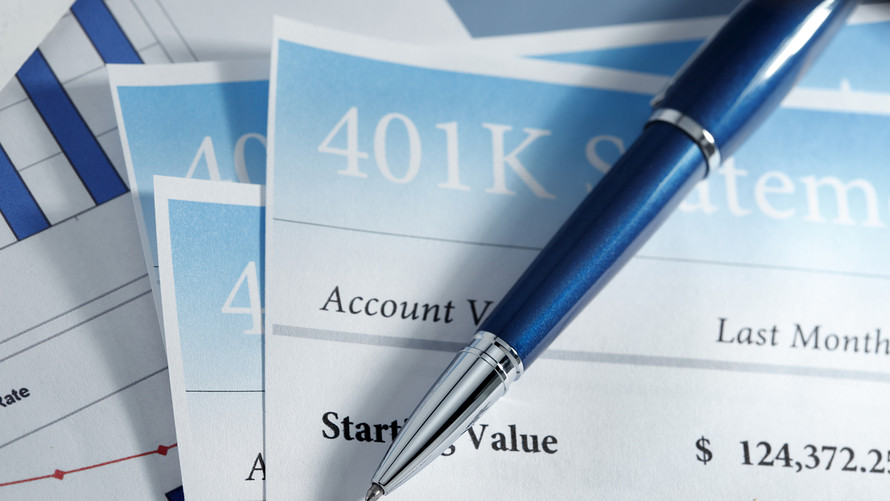
Retire this behavior, immediately.
One in four adults under 35 with a 401(k) has already made an early withdrawal, according to a survey of 2,700 adults released Thursday by financial institution Merrill Lynch and aging think tank Age Wave. The most common reason they cite for taking the early withdrawal: to pay credit card debt.
Indeed, young adults are drowning in debt. All told, households ages 18-34 have about $2 trillion in debt, with 81% of households in this age group having some kind of debt. The most common debts are credit cards and student loans (45% each), with the average credit card balance for that age group hitting $3,700; more than half say they are struggling to pay that off.
And so some turn to their 401(k), but that has consequences. “The chief purpose of 401(k)s (and IRAs, for that matter) is to provide for a financially secure retirement. Any use other than that presents lots of disadvantages,” says Kimberly Foss, president and founder of Empyrion Wealth Management.
Probably the biggest one: The cost. Tap your account before age 59 ½ and you’re likely to have to pay a 10% penalty and income tax on that withdrawal. (There are some exceptions to this 10% penalty, like certain medical expenses, a disability and others; and note that a Roth 401(k) has different rules.) And now that your money isn’t in your 401(k), you’re not enjoying the power of compounding, he adds.
Here’s a simplified example to show you how costly that may be. The average person in their 20s with a 401(k) has a balance of $10,500. Let’s say they withdraw a conservative $5,000 of that. Assuming a 25% federal tax rate and 6% state taxes, they’ll end up paying a total of $2,050 in taxes and early withdrawal penalties alone. That means they’re actually only getting $2,950.
Now let’s say they plan to retire in 40 years and let’s assume a 6% return on investment: The future value of your $5,000 today could have grown to be more than $51,000 by the time you retire in 40 years — and even more if you retire later (as most likely will).
And it’s likely even more costly than that because you’re probably not contributing to your 401(k) after a withdrawal, so you’re losing out on the match from your company, which is free money. “The match overwhelms the interest rate you’re paying on the debt,” says Surya Kolluri, Bank of America’s managing director of the retirement and personal wealth solutions office of thought leadership.
Why do people do this? Many don’t realize just how pricey it will be, says Kolluri: “There’s no question the power of compounding is lost on folks.” Others may have nowhere else to turn. Whatever their reasons, for the most part, “people regret it,” says Kolluri.
To be sure, there are some situations when it might make sense to take an early withdrawal to repay debt, even with the penalties and taxes, if you don’t have another choice. “Although I don’t advocate for people to withdraw from their 401(k), like most things in life, there are times when it may be appropriate. The most obvious may be to stave off bankruptcy,” says Mitchell C. Hockenbury, a certified financial planner at 1440 Financial Partners — who adds that taking a 401(k) withdrawal should be “a last resort.”
And if you do it, you have to be prepared to change your ways, he adds: “Are you going to live below your means? If you can develop a plan for spending and saving money and it is a doable, plausible plan, the use of a 401(k) withdrawal (penalty applies) or loan (perhaps better) may be OK.”
Like Hockenbury, certified financial planner Bobbi Rebell says that instead of a straight 401(k) withdrawal, if you’re desperate for money and don’t have anywhere to turn but your 401(k), you’re probably better off with a 401(k) loan.
“Rather than take money out, if you are truly in a bind, you can borrow money. I do not recommend it, but is the lesser of two evils,” Rebell, the host of the Financial Grownup podcast and cohost of the Money in the Morning podcast,” says. In the case of the 401(k) loan, “at least you are paying the interest to yourself,” she adds, noting that “in either case, make sure you understand the cost and consequences,” she says. Here are the factors to consider if you’re thinking about a 401(k) loan.
So how do you avoid having to take a 401(k) withdrawal? Kolluri recommends these steps: Create and stick to a budget; repay debts quickly and in a timely manner; and have emergency savings.
